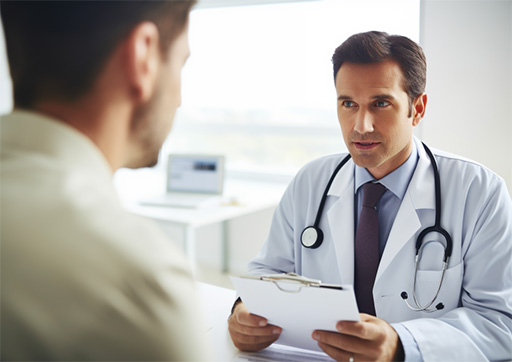The Epic, A Biomeridian Technology for Stress Testing

A technician performs a balance assessment with the EPIC, a Biomeridian technology for stress testing. This skin measurement is non-invasive, painless, accurate and easy to learn. The system itself has a reproducible point testing ability. This allows you resistance test any acupuncture point meridians on the human body including dental points.
Acupuncture Points
Acupuncture points are located on the body’s surface and correspond to energy pathways. They are associated with specific organs and body systems. The energy that flows through these pathways is said to be therapeutic because it helps to restore balance and harmony.
These energy pathways run along the length of your body and connect different parts of your body. Chinese medicine believes that these pathways connect other parts of your body, helping to restore balance and harmony
Chinese Medicine
Chinese medicine and balancing energy varies depending on who you ask. Generally speaking, though, many people believe that Chinese medicine can help restore balance in the body’s energy system by addressing imbalances in qi (pronounced “chee”), blood flow, and other elements of bodily function.
There is no one answer to restoring balance in the body’s energy system, as each person’s individual health needs vary. Some typical Chinese medicine treatments may help with this include acupuncture, herbal remedies, dietary changes, and stress relief techniques.
Simple And Accurate Stress Testing
This combination of hardware and software unites simplicity and accuracy. The software can show patient impedance results obtained by the Epic Stylus. Data is then compiled into a colorful and easy-to-read graphic.
The patient’s care history provides important information to discover what needs attention. This software tool helps with customizing recommendations designed to help certain areas. Patient history is important because it helps doctors determine possible causes of a patient’s symptoms, whether they are related, and if a patient needs specialized tests.
The specialist provides patients with nutritional and therapy support in a short appointment—a comprehensive examination for their health issues performed in a fraction of the time. For example, the BioRep list of 58 acupuncture points provides a quick analysis of fourteen organ systems.

The Fourteen Organ Systems
Skin – The skin is a protective surface that helps to regulate body temperature, protects against infection, and provides a barrier to the environment. It also plays a role in health by regulating blood flow, providing support for the immune system, and acting as a reservoir of sweat, tears, and saliva.
Nervous System – The nervous system controls the body’s muscles, glands, and other organs. It consists of the brain, spinal cord, and nerves. The brain controls everything that happens in the body through thoughts and emotions.
Locomotor – The locomotor is closely related to health. The locomotor helps maintain balance and stability, which are essential for overall health. Additionally, the locomotor can help improve blood flow and circulation. The locomotor also helps to promote physical activity.
Respiratory System – The respiratory system is intimately related to overall wellness. Proper respiratory system functioning allows for adequate oxygenation and ventilation of the body, which helps keep people healthy.
Cardiovascular System – The cardiovascular system is responsible for transporting blood throughout the body. The cardiovascular system also delivers oxygen and other nutrients to cells throughout the body.
Digestive System – The digestive system is responsible for breaking down food so the body can extract nutrients. The gastrointestinal (GI) tract includes the stomach and small and large intestines. Food enters the stomach through the mouth and is mixed with saliva, which helps to break it down into smaller pieces.
Pancreas – The pancreas is a gland located behind the stomach in the abdomen. It produces pancreatic enzymes responsible for breaking down food into smaller molecules the body can absorb. The pancreas is also responsible for producing insulin. Insulin helps the body process food by storing energy and helping to remove glucose from the blood.
Liver / Gallbladder – The liver is a large organ located just above the stomach in the middle of your chest. The liver helps to process food and toxins from the body. The gallbladder is a small, sac-like organ near your ribcage’s right side. The gallbladder helps store bile, produced by the liver and used to break down food.
Urogenital System – The urogenital system is the body’s primary organ for reproduction. It includes the reproductive organs. The system also includes other organs such as the prostate and bladder. Other organs in the urogenital system include the prostate gland and bladder.
Blood – Blood is a fluid that circulates through the body and provides oxygen and nutrients to cells. In addition, it helps remove waste products from the body. Blood also helps to clot when it is injured.
Lymphatic – The lymphatic system helps remove waste and debris from the body. The lymph nodes are small, bean-shaped organs located throughout the body. The lymphatic system also helps fight infection by fighting bacteria and viruses that have entered the body through open wounds or mucous membranes.
Metabolism – Metabolism is the process by which your body breaks down food to create energy and use essential nutrients. In addition, metabolism helps to control the body’s weight. The three main types of metabolism are aerobic, anaerobic, and catabolic.
Endocrine System – A system of glands that make hormones is known as the endocrine system. These hormones regulate several bodily processes, such as growth and development. The thyroid gland, the pituitary gland, and the ovaries are the three primary endocrine system groups.
Immune System – The immune system is responsible for protecting the body from foreign invaders. It does this by recognizing and attacking harmful cells and organisms. The immune system also helps the body heal after injuries or infections occur.
The Epic, A BioMeridian Technology

International Health Technologies (IHT) manufacturers the BioScan MSA and Epic Stylus with BioRep software. These all can aid practitioners with homeopathic, herbal and whole food supplements. Please contact us to learn more on how BioScanMSA can be integrated into your practice.
